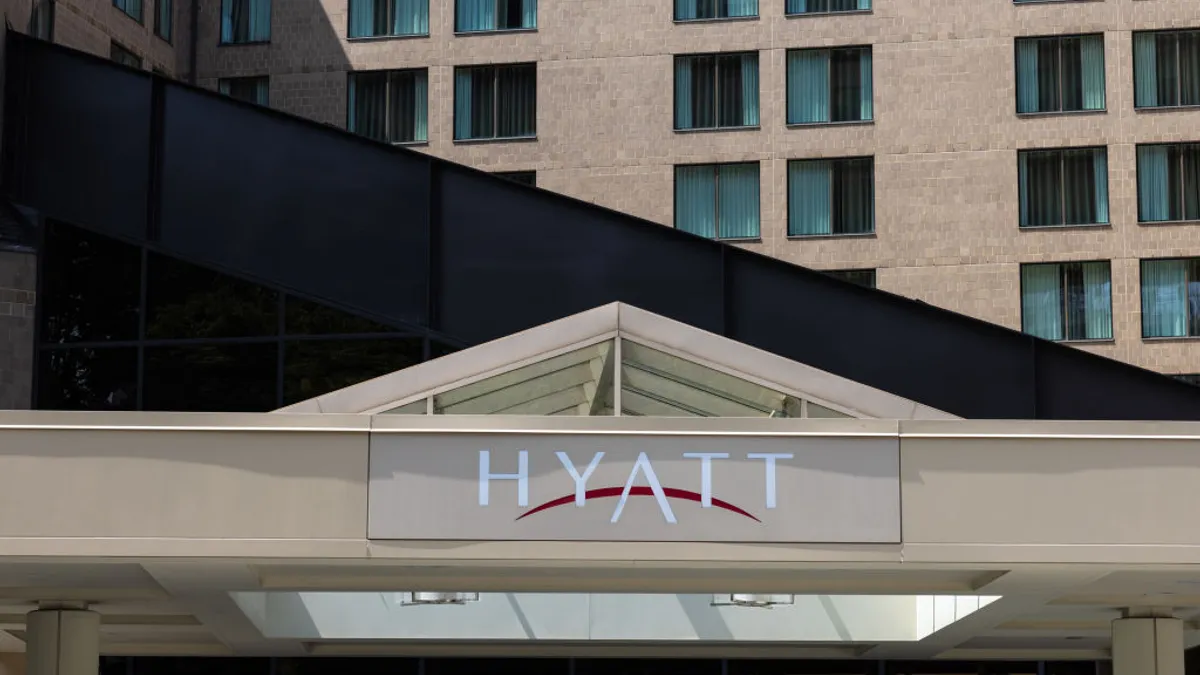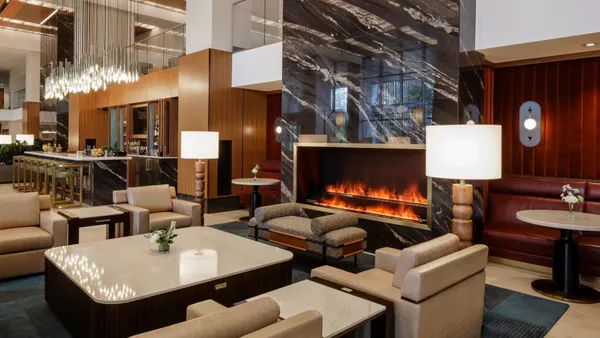In 2024, hotel companies made significant development gains.
Marriott International scaled its luxury portfolio with conversions, while Hilton and Hyatt Hotels grew their respective development pipelines through brand acquisitions. Choice Hotels International and Wyndham Hotels & Resorts, meanwhile, hit development milestones in the extended stay category. And several hotel players, including IHG Hotels & Resorts, targeted the burgeoning lifestyle segment.
Looking ahead to 2025, some of these hotel companies plan to fortify their presence in familiar segments and markets, while others plan to break into uncharted spaces — like outdoor accommodations — as traveler demand evolves.
Six development leaders — one each from Marriott, Hilton, Wyndham, IHG, Choice Hotels and Hyatt — shared with Hotel Dive their outlooks on the development landscape in 2025 and what will drive their respective companies’ growth strategies in the new year.
Responses have been edited for length and clarity.
“A development trend that has continued to gain momentum, and that we don’t anticipate slowing down in 2025, is conversions, including multi-unit conversions, and adaptive reuse.”

Noah Silverman
Global development officer — U.S. & Canada, Marriott International
More from Silverman:
As travelers continue to place value on experiences over goods, nontraditional and experiential hospitality offerings will likewise grow in 2025. Focusing on the segment, Marriott will launch an outdoor-focused soft brand collection this year, anchored by its recent acquisition of Postcard Cabins and long-term agreement with Trailborn.
Strengthening its luxury portfolio will remain a key component to Marriott’s overall development strategy in 2025. On the other end of the spectrum, the company remains enthusiastic about the growth opportunities in affordable midscale.
“Recent industry data points to 80% of investors planning to maintain or increase their capital investment in hotels over the next 12 months. When you consider lower supply over the last few years, along with the expected reduction in interest rates, that lends itself to more transaction activity and an acceleration in new construction projects. The extended-stay segment will continue to be a focus for Wyndham.”

Amit Sripathi
Chief development officer, Wyndham Hotels & Resorts
More from Sripathi:
Infrastructure business, spurred by the $1.2 trillion infrastructure bill the Biden Administration passed in 2021, will continue to play a crucial role in the extended stay segment.
In 2024, Wyndham accelerated growth of its Echo Suites extended stay brand on the heels of historic nationwide infrastructure spending. Infrastructure projects — and the hotel guest demand they drive — pose a $3.3 billion room revenue opportunity for Wyndham franchisees nationwide, the hotel company previously stated.
“Demand for conversions continues to be strong, mostly due to lending constraints and elevated construction costs for new development.”

Bill Fortier
Senior vice president of development — Americas, Hilton
More from Fortier:
Hilton’s luxury and lifestyle brands, including its recently acquired Graduate and NoMad flags, will drive strong growth for the company through 2025.
Hilton will also continue its push in extended stay this year, opening its first LivSmart Studios hotel in Kokomo, Indiana.
“While we’re seeing continued signs of owner, developer and traveler confidence, and an easing of inflation and long-term interest rates, financing and cost of construction remain significant industry hurdles. Lenders remain hesitant to provide favorable construction loans, which, combined with the costs of goods and services, threatens to slow new hotel development. In turn, developers likely will have to continue exploring creative tactics to bring their projects to fruition. One such example is the continued popularity of conversion hotels, which offer the ability to leverage an existing asset and a potentially advantageous workaround to financing obstacles.”

Julienne Smith
Chief development officer — Americas, IHG Hotels & Resorts
More from Smith:
In 2025, the luxury and lifestyle segment in the Americas will remain ripe with potential, as owners and developers recognize the value of shifting to higher chain scales. Brands and properties will continue to evolve to fit the modern luxury traveler, who prefers unique, personalized and experiential stays.
Owner interest in dual-branded hotels — which expand possibilities to offer guests greater choice, streamline operations and costs and enter or grow within smaller markets that may not yet have demand for two larger standalone properties — will also remain strong this year.
“With positive signs, such as the pace of construction spending picking up, building costs beginning to normalize and the potential for additional interest rate cuts, we expect a more robust new construction and transaction environment in 2025, which we believe will translate to acceleration in our hotel development pipeline.”

Dominic Dragisich
Executive vice president of operations and chief global brand officer, Choice Hotels International
More from Dragisich:
Industry projections show that hotel demand growth will continue to outpace supply growth in 2025 and 2026, creating “the type of environment in which hotel conversion capabilities really shine.” Choice will focus on conversions to fuel the growth of its global portfolio in 2025 and beyond. The hotel company will also continue to target expansion in upscale as well as the “white-hot” extended stay category.
“Looking ahead to 2025, Hyatt remains focused on leading the way with a collaborative, owners-first mindset designing solutions to address industry challenges like rising interest rates and construction costs, while driving owner profitability.”

Dan Hansen
Head of Americas development, Hyatt
More from Hansen:
In 2025, Hyatt will work on initiatives including next-generation prototype designs with cost savings and operational efficiencies as well as the growth of its Hyatt Studios extended stay brand. The hotel company will also scale its luxury and lifestyle offerings through the expansion of its new brand portfolios, including Standard International, which it acquired in August.










